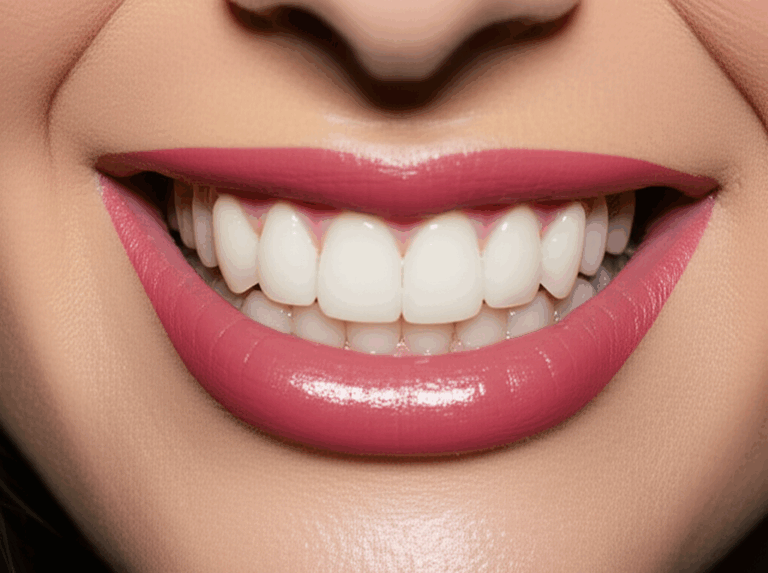
Are Dentist-Prescribed Night Guards Worth The Investment? A Simple Guide to Protecting Your Smile & Health
Ever wake up with a sore jaw, a pounding headache, or feel like your teeth don’t line up anymore? If you do, you might be grinding your teeth at night—without even knowing it. This guide will break down, step by step and in plain words, why a night guard from your dentist could save your teeth, your money, and your smile. You’ll see why these dentist night guards are worth what they cost, how they work, and when it’s time to get one. I’ll also share stories, give examples, and highlight the facts so you can make the best choice for your teeth.
Table of Contents
1. Introduction: Is a Night Guard from the Dentist REALLY Worth It?
Let’s be honest. You want to know if getting a night guard from your dentist is a good idea. The short answer? Yes, for most people with teeth grinding or jaw pain, a night guard made by your dentist is a smart, long-lasting way to save your teeth, your money, and keep pain away.
But why? What makes a dentist’s night guard better than one from the store? Let’s break it down—because if you’re like me, you don’t want to waste money on things that don’t help.
2. Why Do People Need Night Guards?
Do you catch yourself clenching your jaw when you’re stressed? Maybe you wake up with headaches, jaw aches, or see your teeth getting shorter. If so, you could have bruxism (teeth grinding) or TMJ (jaw joint trouble).
Your teeth and jaws work hard, especially at night when you can’t notice what’s happening. This is where a night guard helps.
Night guards help with three main things:
- Stopping teeth from grinding and clenching together
- Easing pain in your jaw and head
- Protecting pricey dental work, like crowns and veneers
Ignoring these problems can lead to major dentist bills, and worse—real pain.
3. What is Bruxism and TMJ?
To get why a night guard matters, let’s talk about bruxism and TMJ.
What is Bruxism?
Bruxism is simply when you grind or clench your teeth. It happens during sleep or when you’re awake. It can cause:
- Tooth pain or extra sensitivity
- Jaw pain and tightness
- Headaches (especially in the morning)
- Teeth that look worn, chipped, or cracked
What is TMJ/TMD?
TMJ means temporomandibular joint, the hinge that lets your jaw move. TMJ trouble (TMD) happens when you feel pain here. You might notice:
- Clicking or popping when opening your mouth
- Hurts when you chew
- Jaw locks up or is hard to open wide
- Ear or neck pain
Lots of times, bruxism and TMJ go together. Grinding puts pressure on your jaw, which leads to TMJ pain. When these problems stack up, even eating or smiling can hurt.
4. The Trouble with Letting Teeth Grinding Go Untreated
Here’s something I’ve seen more than once. Someone ignores their grinding for years. Then, while eating soft bread, a tooth snaps. A huge dentist bill follows. Ouch—no fun.
The real dangers of skipping treatment:
- Cracked, chipped, or loose teeth
- Gums that pull back
- Worn-down teeth that hurt with hot and cold
- Broken dental work (like crowns or veneers)
- Ongoing head, jaw, and neck pain
Picture your teeth like bricks and your jaw as a hard wind. Over time, the wind chips away or blows those bricks down. A night guard is like a wall that protects those bricks from the storm.
Fact: Dr. Joe Dental says, “About 30% of people grind their teeth, but only a few do something about it. By the time they come in, the harm is done.”
5. What is a Dentist-Prescribed Night Guard?
A dentist-prescribed night guard is a clear plastic mouth cover you wear when you sleep.
- It’s shaped just for your teeth and how you bite.
- It makes a shield between your top and bottom teeth.
- It cushions the pressure when you clench your jaw.
This isn’t like wearing a thick sports mouthpiece. A dentist’s night guard is thin, comfy, and made just for your mouth.
Types of Dentist Night Guards
Dentists make a few types:
- Hard plastic: Toughest; good for heavy grinding.
- Soft plastic: Comfy for light grinding.
- Combo (dual type): Soft inside, hard outside; great for people who grind a lot.
All are safe and strong. Many labs, like iStar Dental Lab, use BPA-free plastic for people who want it healthier.
6. How Does a Custom Night Guard Work?
Imagine a pillow for your teeth and jaw. That’s a night guard.
- It takes in the pressure when you bite down.
- It keeps your teeth from hitting each other so they don’t get worn, broken, or chipped.
- It can help your bite and even lower muscle tension that causes pain and headaches.
- It protects your expensive dental work like crowns from a trusted dental ceramics lab.
A custom guard fits you just right. That means you’ll actually wear it without it falling out or feeling too thick in your mouth. You’ll get the good stuff because it stays in place all night.
7. Custom Night Guards vs. Store-Bought Guards—Who Wins?
Everyone asks: “Why pay the dentist when the store has one for twenty bucks?”
Makes sense—you don’t want to spend extra if you don’t have to. Here’s a side-by-side:
| Custom Night Guard (Dentist) | Store-Bought Guard (OTC) | |
|---|---|---|
| Fit | Just for you | One-size-fits-most (sort of) |
| Comfort | Thin, won’t slip or gag | Thick, often not comfy |
| Works Well | Protects all teeth, lines up jaw right | Might miss spots, can make grinding worse |
| Lasts | Good for years (2-5 years) | Months, easy to chew through |
| Material Quality | Safe, dental-level, BPA-free | Cheaper plastic, unknown |
| Dentist Help | Yes (checks and fixes fit) | No help, you’re on your own |
| Might Cause Problems? | Not likely | Yes (can hurt bite, worse pain) |
Big point: A badly fitting store guard can mess up your bite, make your jaw hurt, or even break your teeth. A bad guard is worse than no guard.
8. Are Night Guards from the Dentist Expensive? (And Are They Worth It?)
Let’s talk about the big question: price.
Dentist night guards usually cost $300 to $800, sometimes more if your teeth need a lot of work or you need changes.
Store night guards cost $20 to $60. But don’t be tricked by the cheap tag.
So, Are They Worth It?
Think about:
- Dental bills: One crown or veneer (from a reliable crown and bridge lab) can be $800 to $2,000. A cracked tooth? That might mean a root canal and a new crown.
- Saving cash: A good custom guard lasts for years. You’d buy and toss lots of store guards in that time.
- Insurance: Many dental plans will pay some money towards your night guard if the dentist says you need it for grinding or jaw pain.
For example: One of my clients had to pay $1,200 for new crowns after skipping treatment. That’s way more than a night guard would have cost.
Simple answer: Dentist night guards seem costly—but just until you see how much pain, dentist visits, and cash they save later.
9. What Are the Pros and Cons?
Here’s the good and the bad.
Pros:
- Stops teeth from getting chipped or worn
- Helps with jaw and face pain
- Cuts down headaches
- Keeps dental work safe (crowns, bridges, veneers)
- Custom fit so you’ll use it
- Strong—one can last years
- Dentist can tweak fit if you change
Cons:
- Costs more at first
- Takes a little while to get used to (might drool or feel tight at first)
- Needs to be cleaned or it gets dirty and smelly
- Does not stop grinding—just blocks the harm
A night guard isn’t magic, but for lots of people, it’s the difference between always needing dental work and waking up pain-free.
10. Who Really Needs a Night Guard?
Still not sure if you need one? See if these are true for you:
- Dentist says you grind teeth or have TMJ
- Wake up with sore jaw or headaches
- Jaw pops or clicks
- See chips, cracks, or short teeth in the mirror
- Have crowns, bridges, or implants you want to protect
- You know you grind or clench due to stress or how you sleep
Kids sometimes need night guards too—ask your dentist.
11. What’s the Process for Getting a Night Guard from the Dentist?
Worried it’s hard to get one? It’s really simple.
- Appointment 1: Dentist checks your mouth and jaw, asks about your pain, and might take X-rays.
- Impression: You bite into soft goop or a digital camera is used (lots of offices now use easy, quick digital scans).
- Making the guard: Your special night guard is made at a skilled lab, maybe a china dental lab, for perfect fit.
- Fitting: In about a week or two, you go back in and your dentist checks it. Tiny adjustments are made for comfort.
- Care: Dentist shows you how to clean and keep your guard fresh. You’ll come back every once in a while to check how it’s doing.
Most people get used to a night guard in a week. Soon, you won’t even notice—except that your pain is gone!
12. Are There Good Alternatives or Other Treatment Options?
Night guards work well, but there are extras that might help:
Handle stress: Get into habits like relaxing, stretching, or just taking slow breaths.
Therapy/Massage: Some dentists or pain doctors can teach you jaw stretches or show you how to massage tight spots.
Medicine: Sometimes, short-term muscle relaxers or pain pills help, but these are not forever.
Bite fix: Once in a while, you may need braces or small tooth changes to help your bite.
Don’t ever try to fix these things by yourself—always see a dentist.
13. FAQ: Your Top Night Guard Questions, Answered
Q: Will a night guard stop me from grinding?
A: The guard doesn’t stop grinding. It just keeps your teeth and jaw from being hurt.
Q: What if my insurance says no?
A: Have your dentist write down your problem. Some insurances pay if you’re grinding or have TMJ.
Q: How long does a night guard last?
A: Take care of it, and a good guard can last 2-5 years or more. Heavy grinders may need a new one sooner.
Q: What if it hurts more with the guard?
A: Tell your dentist. Sometimes it needs a small fix or a new kind. Don’t just put up with pain!
Q: Do I need to wear it every night?
A: Yes, if you want it to help. The more you use it, the safer your teeth are.
14. Key Points to Remember
- Custom night guards from your dentist give the best safety to your teeth, jaw, and any dental work you already have.
- They are comfy, last a long time, and made for you.
- They cost more, but save you big money if they keep you away from expensive dentist work.
- Your comfort and pain relief are worth it.
- Getting a night guard is simple, safe, and many times dental insurance pays for part.
Don’t ignore jaw pain or teeth that look worn—take care now! Book a visit with your dentist to see if you need a night guard made for you. Protecting your teeth today means more smiles tomorrow.
This article was reviewed by Dr. Joe Dental, DDS, who has more than 15 years helping people with teeth grinding and jaw joint pain. If you want to learn more about how custom night guards are made, visit a dental partner like iStar Dental Lab. For stronger teeth and less pain, a night guard might be your first step.
Remember:
- Protect your teeth at night.
- Go custom for the best feel and fit.
- Save your smile—and your wallet—for later.
- Always check with your dentist to find what’s right for you.








